What's the status of RI's landmark 'safe-injection sites' program? Outreach is underway
It’s been 10 months since Gov. Dan McKee signed into law a pilot program to create safe consumption sites for users of illicit drugs. Passage of the landmark legislation made Rhode Island the first state in the nation to embrace a harm-reduction strategy advocates believe will save lives and cut down on costly emergency runs as the state experiences record accidental opioid overdose deaths.
At last count, 437 people fatally overdosed in the Ocean State in 2021.
In the months since the law took effect, the state Department of Health has put regulations on the books for the so-called “harm-reduction centers,” and an advisory committee has been named to oversee their development. So far, the state has yet to field any concrete proposals — an indication, perhaps, of potential roadblocks ahead.
'A crisis': Record number of Rhode Islanders died from accidental drug overdoses in 2021
More: Here's what it will take to open 'safe-injection sites' in Rhode Island
Now, two organizations dedicated to recovery are joining forces to launch the first center — VICTA and Project Weber/RENEW. The organizations are scouting possible buildings to purchase in areas in Providence that see the most opioid-related rescue runs and overdoses, such as along Cranston Street. They are quietly engaging community leaders, looking to cultivate support by familiarizing them with their organizations’ work and by educating them about safe consumption sites in Europe, Canada and New York City.
“We really want to move cautiously, because the first one will set the stage for others to come,” said Lisa Peterson, chief operating officer at VICTA.
Seeking community support: 'These are literally your friends'
The center must first be approved by city or town leaders in the community in which it is proposed before being licensed by the state Department of Health, a steep hurdle by all accounts.
“We don’t want the first one to create a backlash. We don’t want to make a misstep,” Peterson said. The organizers plan to meet with constituents to address concerns.
Colleen Daley Ndoye, executive director of Project Weber/RENEW, said discussion with Providence public safety officials has been productive and positive.
“We’re grateful for their input. They see it as a public health crisis,” Ndoye said.
More: RI Gov. McKee signs legislation allowing safe-injection sites into law
More: Drug bills signal sea change in RI's approach to opioid crisis
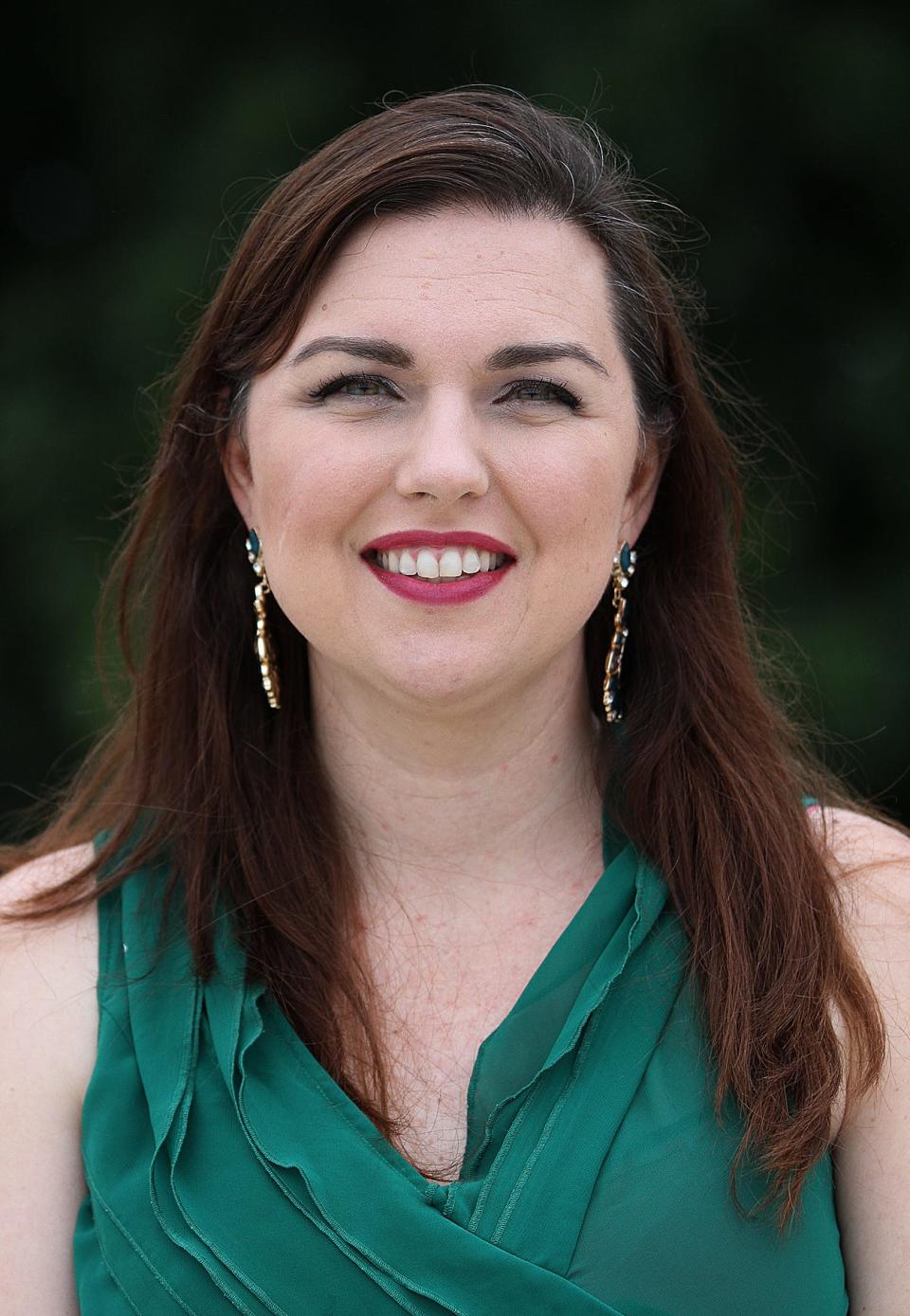
Providence logged 559 emergency calls for suspected overdoses and experienced 47 overdose deaths in 2021, according to the state Department of Health.
An unnamed donor has offered to pay half the costs of purchasing a building at an as yet unknown site, Ndoye said.
The ideal location will be the “most impactful” and easily accessible to the community that is using controlled substances and struggling with substance use disorders, Peterson said.
“It’s getting the community to realize this is already happening in an unsafe way,” Peterson said.
Drug use and overdose deaths are taking place in alleyways, parking lots and street corners without safeguards, she said.
“These are people who are already in your community. These are literally your friends,” Peterson said.
Replace stigma with compassion: RISD students reimagine better approaches to drug addiction
More: A beacon of HOPE amid RI's opioid crisis: Police, addiction specialists team up
Support from Elorza and Democrats running for Providence mayor
Mayor Jorge Elorza lent his support to the legislation as it made its way through the General Assembly last year.
“By connecting people who use drugs with necessary health care professionals to prevent overdoses and make referrals for counseling or other medical treatment, the harm-reduction centers may significantly reduce the impact of the overdose crisis on our communities,” Elorza wrote.
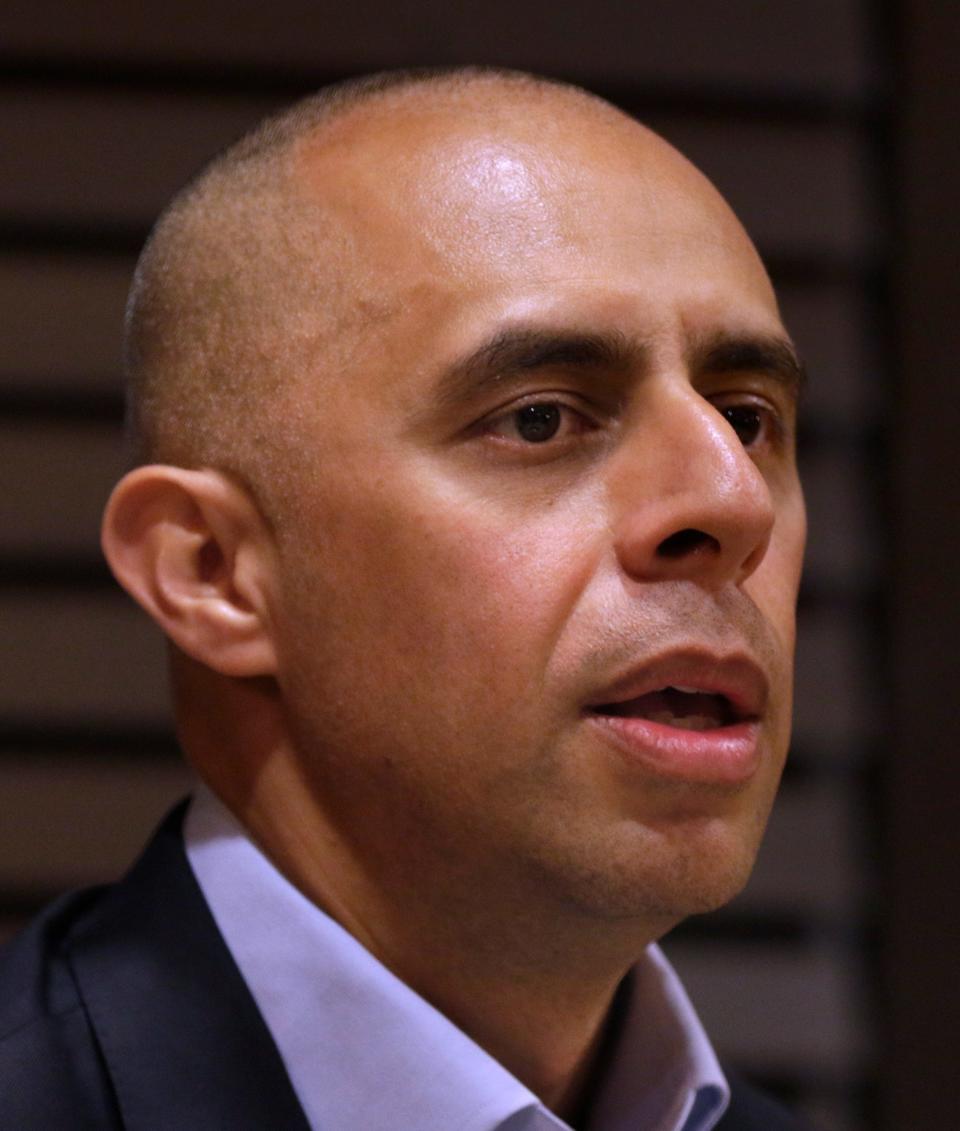
Some of his would-be Democratic successors also extend support.
One contender, Gonzalo Cuervo, former chief of staff to Secretary of State Nellie Gorbea, embraced harm-reduction centers as central to combating the opioid crisis.
"Harm-reduction centers play a critical role in making individuals and communities safer. It's clear that Providence is an obvious location for such a center, albeit with input and buy-in from the surrounding community," Cuervo said in an email.
Nirva LaFortune, a councilwoman who is running for mayor, acknowledged possible benefits a center could have in reducing overdose deaths and ensuring that users don’t share needles, but she emphasized that it must be well regulated and carefully sited so that communities of color aren’t further marginalized.
“We need to be very strategic where these centers are located. Nothing should happen without community input,” LaFortune said.
Brett Smiley, a former top aide to Gov. Gina Raimondo who is running to replace Elorza, expressed openness to centers being located in the city.
“There were 100 overdose deaths in Providence in 2020. I believe that with the right regulations and policies in place, overdose prevention sites can be a life-saving part of the strategy to combat the overdose crisis," Smiley said in an email. "Anything that we can do, we should do in order to help reduce the number of lives lost to overdose, and help people engage in treatment and find recovery.”
Mayoral candidate Michael Solomon did not respond to messages seeking input.
Most Providence City Council members mum on pilot program
The stance Providence City Council members take is key to the program's progress. The Journal left messages with all 15 City Council members, but heard back from few.
Council President John Igliozzi seemed open to the concept, but with precautions in place to minimize the impact to the surrounding community. He urged that if a proposal comes before the City Council, council members should “act responsibly with legislation limiting the locations of these centers and avoiding places like schools, churches, playgrounds, and daycares.”
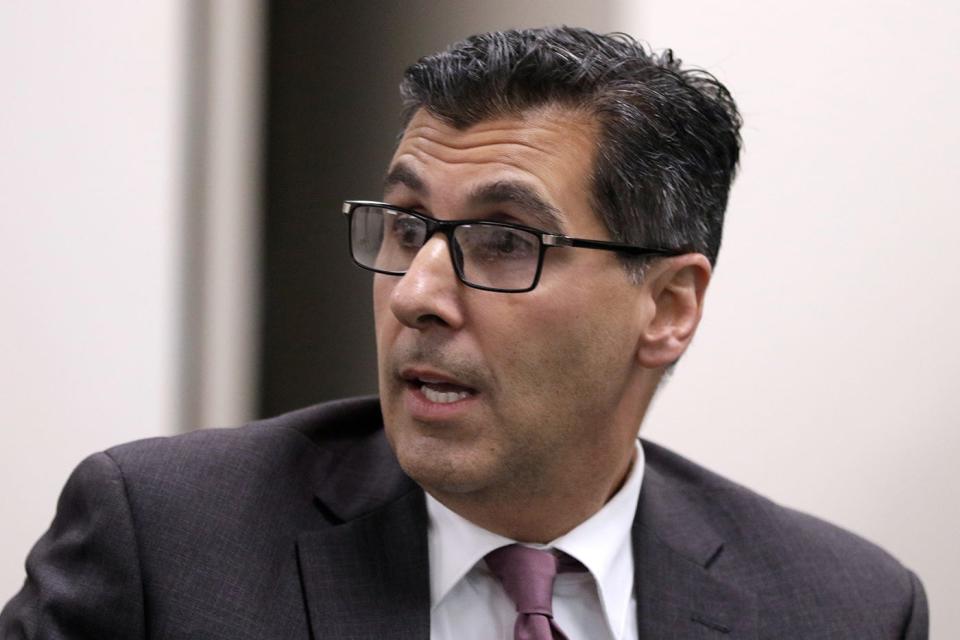
“While I do not condone drug use, I understand and am sensitive to the destructive nature of addiction. Suppose Providence was to host a harm-reduction center under the state’s pilot program. The facility must be located next to or in a hospital with emergency healthcare, not in a neighborhood near families and children,” Igliozzi said in an email.
Councilman John Goncalves, who represents the Fox Point-College Hill area, is supportive of harm-reduction centers, but wants the city to do its due diligence in vetting possible sites. He highlighted the importance of harm-reduction strategies and the need to address the opioid overdose crisis on the local level.
“Rhode Island is leading the charge on this nationally,” Goncalves said.
Councilwoman Kat Kerwin said she advocated for a center for her Smith Street neighborhood, where the American Lithuanian Club opened this winter as a makeshift homeless shelter. The presence of discarded needles and several overdoses rankled even supportive neighbors and magnified the issues, she said.
“If this is happening anyway, why don’t we want to do it in a safe way?” Kerwin said.
Councilman David Salvatore, who represents the Elmhurst and Wanskuck neighborhoods, said he, too, is open to exploring harm-reduction centers and working with stakeholders. In concept, safe consumption sites would “increase the number of touch points” users have with social service providers, he said.
“I don’t want this to be perceived as a Providence problem,” Salvatore said. If data suggest centers are effective in lowering overdose deaths and edging users toward recovery, they should then be opened in communities around the state, he said.
With the majority of council members unwilling to state their position and an election looming that could potentially shift politics to the left, it’s hard to pinpoint where the council will land.
“I’m hopeful we can get the council on board. Those conversations have started,” Peterson said.
Legislation would extend program through 2026
State Sen. Josh Miller has long championed harm-reduction centers and pushed for passage of legislation for years.
“The best center is a comprehensive center where supervised consumption is a component of a setting to provide a series of services,” said Miller, a Democrat representing Cranston.
The aim is to connect people with housing support, mental health treatment, medical care, and ultimately edge them toward recovery.
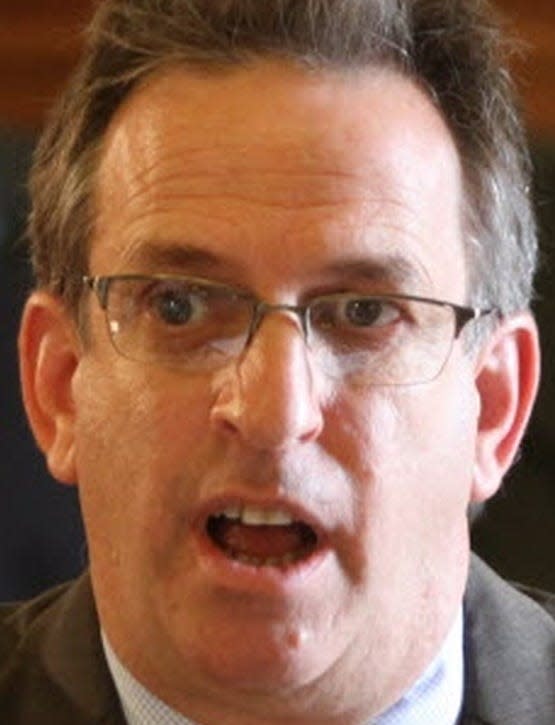
“It’s an opportunity that shouldn’t be missed,” Miller said.
He has sponsored legislation this session to extend the two-year program through 2026. The measure has been held for study, but Miller believes it has state lawmakers’ support.
Rep. John G. “Jay” Edwards, also a sponsor of harm-reduction legislation and the bill to extend the program, says the state would benefit from centers opening in Providence and Pawtucket, areas that data identifies as hotspots of drug use.
“Obviously, the numbers just prove these are necessary,” Edwards, D-Tiverton, said. “The epidemic isn’t going away. It’s going to require a number of tools, and this is just one of them.”
Which RI municipalities do not support harm-reduction centers?
But for Central Falls, support appears tepid outside the capital city, in urban areas where overdose numbers and rescue calls have consistently been high.
Central Falls Mayor Maria Rivera applauded the state for “taking the steps to allow these overdose prevention sites to open to provide important safety measures to individuals living with addiction.”
"Here in Central Falls, we've seen too many lives lost to devastating, dangerous overdose — something no individual or family should ever experience. ... I support services that will help residents living with the difficult disease of addiction be safer and reduce the risk of devastating loss, along with an opportunity to build trust and ultimately a connection to recovery resources,” Rivera said.
The city saw 46 overdose-related rescue runs and experienced five overdose deaths, according to the state Department of Health.
Pawtucket Mayor Donald Grebien didn’t directly address whether the city had an appetite for harm-reduction centers, but said he is concentrating on an initiative unveiled last fall to transform city fire stations into “safe stations.” Under that plan, people using drugs can receive life-saving intervention, fentanyl test strips and information about treatment options at fire stations around the clock.
“The city is always in support of measures that will assist individuals in the community but is currently focusing on the safe station initiative for the foreseeable future,” Grebien said. Rescue crews there responded to 127 overdose-related calls and 12 overdose deaths in 2021.
Woonsocket Mayor Lisa Baldelli-Hunt and the City Council recently floated a resolution opposing harm-reduction centers. According to the Valley Breeze newspaper, the leaders wrote that they “do not support or condone the consumption or use of illicit drugs” and would not place a harm-reduction center in the city. Firefighters there responded to 163 calls for suspected overdoses and recorded 11 overdose deaths in 2021.
The City of Warwick, likewise, is not open to the concept, at least at the mayoral level.
“Safe injection sites are not in the pipeline in the City of Warwick. Mayor Picozzi and the City’s Police Chief, Brad Connor, are not supportive of sites in our community,” Elizabeth Tufts, a spokeswoman for Mayor Frank J. Picozzi, said in an email.
Warwick firefighters logged 157 overdose-related rescue calls and 16 overdose deaths in 2021.
Steven Paiva, a spokesman for Cranston Mayor Ken Hopkins, didn’t respond to three phone calls seeking information about that city’s stance. Cranston saw 100 opioid overdose-related rescue runs and 11 overdose deaths in 2021.
Federal government's stance on centers is unclear
Organizers view the experience in Philadelphia as a cautionary tale. Federal prosecutors successfully blocked a safe consumption site there by arguing that it would violate the U.S. Controlled Substances Act’s prohibition on “crackhouses.”
Still, the U.S. Department of Justice's position under President Joe Biden remains unclear.
“While the Justice Department cannot comment on either state legislation or on pending litigation on this issue that is ongoing in other jurisdictions, the Department is evaluating the concept of supervised consumption sites, including discussions about appropriate guardrails for such sites, as part of an overall approach to harm reduction and public safety,” Jim Martin, a spokesman for U.S. Attorney Zachary Cunha’s office, said in an email.
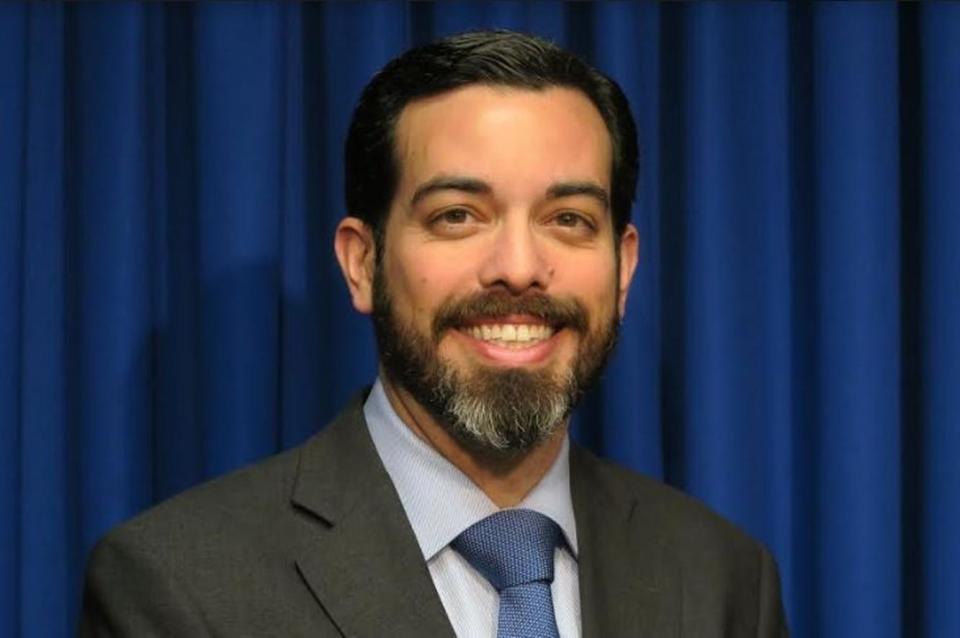
Advocates hope federal authorities take a hands-off approach toward enforcement, similar to the tack taken with the legalization of marijuana. Though it’s against federal law, it has not been an enforcement priority.
“[The centers are] illegal under federal law and this has stifled the opening of these sites,” said Beau Kilmer, who focuses on drug policy for the Rand Corporation, an independent nonprofit organization that helps shape public policy through research and analysis.
Kilmer observed that two centers have been operating in New York City since last fall, without federal intervention. It is estimated that staff at the centers halted more than 150 overdoses during about 9,500 visits in the first three months they were open, according to Associated Press reports.
“No one was quite sure what the federal government was going to do,” Kilmer said.
If Rhode Island’s pilot program proves a success, backed by data and research, and federal officials provide formal guidance on similar efforts, it could “open the floodgates in other states,” he said.
“We are in the middle of an unprecedented overdose crisis. There is a real call for trying something new,” Kilmer said. “All eyes are on New York City, Rhode Island and the U.S. Department of Justice.”
Where RI law enforcement agencies stand on harm-reduction strategy
The centers appear to have the OK of law enforcement in Rhode Island, whose members have borne much of the surge in opioid use and overdoses.
The Rhode Island Police Chiefs Association stayed silent regarding the safe consumption sites as the legislation made its way through the State House, according to Sid Wordell, the association’s executive director.
“Law enforcement has been slow to accept it as a disease. The fact that we’re not objecting is a show that in Rhode Island we’re viewing addiction as a disease,” Wordell has said.
Attorney General Peter Neronha takes a cautious approach.
“I believe that the General Assembly was correct to initiate harm reduction centers as a pilot program, rather than a permanent one, as such programs in the United States at present are few and in their infancy where they do exist. Provided that the harm-reduction centers ultimately receive the necessary municipal approvals and open, I will be greatly interested to learn the degree to which such centers advance Rhode Island’s opioid prevention and remediation efforts,” Neronha said in an email.
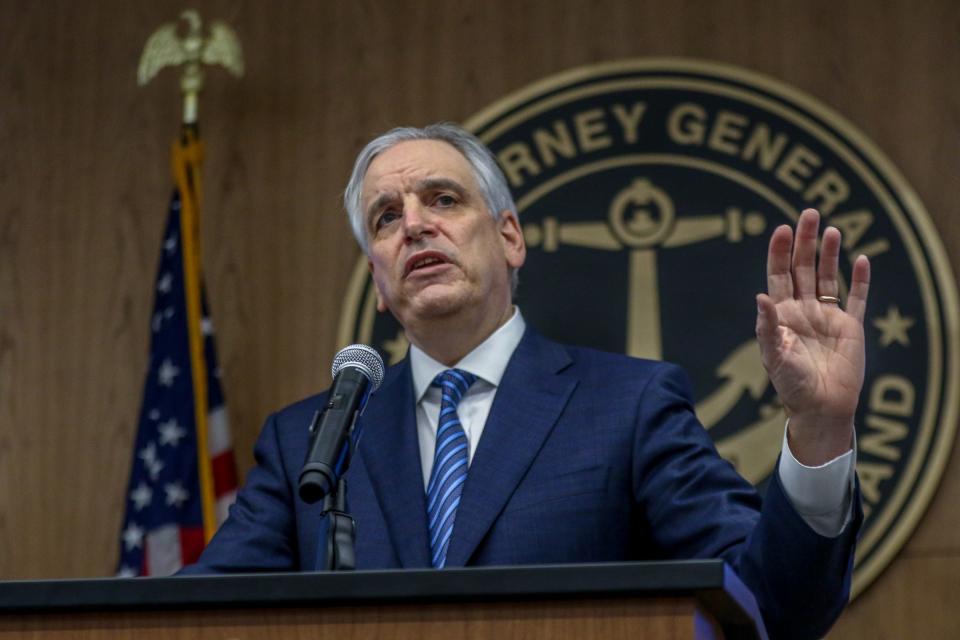
He emphasized that his office’s prosecutorial focus on drug traffickers, who “continue to drive the opioid crisis that has harmed so many Rhode Islanders and their families.”
“Consistent with this approach, the office has worked with our law enforcement partners to ensure that Rhode Islanders who suffer from substance use disorder and possess small amounts of drugs for personal use receive the help they need while moving through the court system, whether in diversion court, drug court, or one of the other specialty courts created by the General Assembly,” he said.
Unclear whether drug-settlement money will be available
Whether harm-reduction centers will be eligible to receive some of the more than $250 million that Neronha’s office has negotiated in opioid settlements remains undetermined. State money from those agreements will be subject to appropriation as part of the Executive Office of Health and Human Services budget, with advice and guidance from an Opioid Settlement Advisory Committee.
More: RI nets $112 million in settlement with opioid manufacturer, distributors. What we know
“At this juncture, it is premature to opine on whether any of these funds should be used to support the establishment of harm-reduction centers. That determination should and will be part of a more holistic discussion. … However, certainly, among the permitted uses for settlement funds are harm-reduction strategies such as distribution of Naloxone, needle exchange programs, fentanyl test strips, warm hand-off and referral services, and recovery support services, all of which, we understand, would be part of the services to be offered by the proposed harm-reduction centers,” Neronha said.
Peterson hopes one day that the centers can break through societal stigma surrounding substance use and become gathering places for the community, as seen in other countries.
“I see this as much more than a place to use substances. I want it to be a community center,” she said. “People who use are not separate from the community.”
This article originally appeared on The Providence Journal: Rhode Island's landmark 'safe-injection sites' program begins outreach

